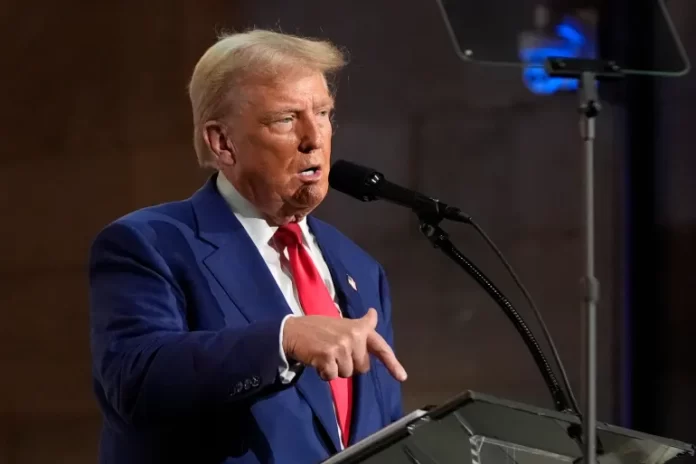The U.S. government has recently revoked or terminated the legal status of approximately 600 international students across more than 90 colleges and universities, signaling a renewed immigration clampdown under former President Donald Trump’s administration.
Reports from ABC News reveal that many of the affected students come from India and China—countries that collectively make up a significant portion of America’s international student population. So far, no Nigerian student has been directly linked to the ongoing visa revocations.
However, growing anxiety surrounds the development, especially among Nigerian students, who represent 1.5 percent of the U.S. international student body. Confirming the situation, AbdurRahman Balogun, spokesperson for the Nigerians in Diaspora Commission (NiDCOM), told PREMIUM TIMES that while the Commission is monitoring events, there have been no reported cases involving Nigerian students.
“We are aware of what’s happening, but as of now, no Nigerian has come forward with a complaint,” Balogun stated.
The crackdown appears to be focused on students holding F-1 and J-1 visas. The F-1 visa is typically granted to those enrolled in full-time academic programs at accredited institutions, while the J-1 visa covers individuals involved in broader cultural and educational exchanges, including research and training.
Holders of J-1 visas are expected to exit the U.S. within 30 days after completing their programs.
U.S. State Department officials have justified the visa revocations by citing the Immigration and Nationality Act of 1952, which authorizes deportation if a noncitizen’s activities pose a risk to U.S. foreign policy.
Some students reportedly faced deportation for participating in political protests.
Secretary of State Marco Rubio, during a press briefing in March, confirmed the enforcement action, saying the Department had already stripped hundreds of students of their visas. “We do it every day. Each time I find one of these radicals, I revoke their visa,” Rubio said.
Immigration experts and attorneys believe the move reflects a wider strategy by Trump to tighten immigration controls. Several affected students have filed legal challenges, arguing that their rights to due process were violated and that the government lacked sufficient grounds for the visa cancellations. Some said the infractions cited against them, including outdated traffic offenses, were minor and unfairly used to justify deportation.
In light of the uncertainty, many universities are advising international students against traveling abroad, particularly during spring break, due to the heightened risk of being denied re-entry. A student at the University of Maryland confirmed receiving a university-issued travel advisory. Similar warnings have been issued by top institutions such as Yale, Harvard, and Brown.
The travel warnings coincide with a recent travel ban announced by the Trump administration in March, which affected 43 countries—22 of them in Africa. Nations were grouped into three categories (orange, red, and yellow) based on perceived risk, with the orange list facing the harshest travel limitations. Nigeria was notably absent from the list.
As legal battles unfold and fear spreads among international students, many are left uncertain about their academic futures and ability to remain in the United States.



